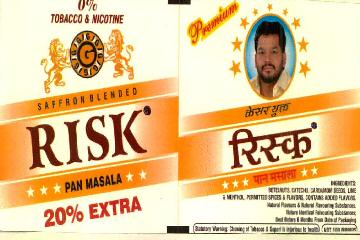Clients are from Mars, Agencies from Venus
Disclaimer: I have not read the book (Men are from Mars, Women from Venus) and don’t intend to do the same (just trying to show off with a cool title)
Another Disclaimer: This article is inspired by my experiences with various agencies that I have worked with as a CLIENT (I take pride in that and hence the all caps) like Ogilvy, JWT, LOWE, Publicis, Group M etc. (there are so many of them, a dime a dozen-pun intended). I will try and write an unbiased post but given that I have been on client side all my life, I might lose track at times (could be deliberate).
Lets start by defining the subjects: Agency and Client (there will be two sets of definitions one from agency POV and one from client POV)
Definitions set 1: How a client would define them?
Agency: A bunch of underpaid losers with fancy designations who don’t know shit and can’t deliver even with a single minded brief.
Client: Intellectual set of people, highly qualified, experts in their fields, who write great briefs.
Definitions set 2: How an agency would define them?
Agency: Intellectual people, highly qualified, experts in their fields, can turn around a bad brief into great award winning campaigns.
Client: A bunch of over paid losers with fancy designations who don’t know shit and can’t deliver a single minded brief.
Now that you know the point of views lets get down to business.
When I joined my first job as a marketer I was told three things:
1. your life depends on your agency
2. ensure you make them slog
3. have a great relation with the agency (go to bed with the agency-not literally) (but I know of a lot of people who actually married their agency counterparts to prove literally.)
The teams: Agency has a client servicing person, a planner, a creative person, a studio guy, a runner, a copywriter, a translator, security, a liftman, their canteen wala and many more. Client has only one poor brand manager who has to manage all of them, keep them happy and ensure great relationship with each one of them.
Now business: (The entire thing boils down to cracking a great brief and every thing links back to that)
1. Knowing your TG, (Target Group for the uninitiated) which no one has understood till date. Neither the poor brand managers who has traveled to villages or small towns (if you manage a brand like Wheel, Annapurna etc.) or to consumer’s house holds in Urban areas (for the luckier ones like Dove brand manager; even luckier ones travel to night clubs like the Axe brand managers) (the ones i dreaded most was the women’s sanitary napkin brand managers e.g. Kotex or Whisper who would maintain a diary of the monthly cycle of female colleagues and ask for their feedback), nor the agency teams (planners who are supposed to travel with the brand managers but never do and client servicing teams who travel in large numbers when they don’t need to -its client’s money). For any agency based in Mumbai a middle class consumer is one staying in a chawl and an affluent consumer is one staying on Peddar road.
2. Brief: Now this is the most dreaded part. How to write what you need in one page and keep it single minded. Well if i want to sell a credit card which offers maximum air miles and also has lowest interest rates and has a fancy concierge desk how do i keep it single minded. I want to talk of all three (my boss has never liked my briefs and not has my agencies). With a lot of hard work (meeting the consumers to understand what they want -including visits to places where i want to buy stuff for my wife and visiting home town) and sitting with the R&D team and after a month a brief is ready (if you are chalking out a network for a new launch please budget that much time for writing a good brief (which would still be rejected))* notice the double brackets. And for the heartless agency team it takes just a second to rubbish the brief with the three dreaded comments:
a. The brief is not clear (what do you mean, the print out is legible, the fonts are big, what more do you want)
b. Its not single minded (I was always tempted to ask my agency partner to write a single minded brief and share with me which I can reject)
c. Give us a week to understand the brief and get back to you (what do you mean, are you nursery kids that it would take a week to understand one sheet of document) (after a week they would repeat either of the above two options)
Given the pressure from the marketing head and the impending deadline for launch of the campaign the brief is accepted (bahut ehsaan kar ke). (Have you ever paid someone huge sums of money to reject your work)
3. Campaign delivery and timelines: Now the ball is in their court and brand managers can have fun sending follow up mails, escalating one level at a time till, the country head is marked. (eagerly waiting for the first submission). Agency had asked for 15 days to get back, what they get back with in three weeks is doubts on the brief (seriously-were you sleeping for that long). Again the blame is no brand manager that the brief was not clear hence the delay. Now timelines are agreed and agency presents the concept note (now its time for the brand manager to reject work) which you want to reject but the smart client servicing person convinces you that this is the best possible concept. Brand managers accept it knowing fully well that their boss would reject it.
Agencies have become smart over time. they always share a substandard concept to the client fully aware that client would reject the first concept to satisfy their EGO (caps means big ego) after all they are clients. They would then present a slightly better concept (still substandard but this time the planning head and creative head would come for the meeting and it would go through as marketing head is happy that he is talking to seniors and throwing his weight around) which is now accepted to take forward.
Now is the time for the agency to make money. To take the concept forward, they would need a photo shoot (i am talking only of a print campaign as the brands that i have worked for never had the money to run TV advertising) (what is wrong with stock photos). Photo shoot is done, money spent, output is substandard but you have to now sell it internally as you signed the estimate for the shoot.
Now the processing at the studio. Some things that always happen;
a. our servers are down (my company servers are never down, somehow never believed this)
b. each image is taking hours to download
c. system work will take 13 hours for each image
d. studio is over booked (well all agency studios are under resourced)
e. art-working takes time (how would you know, you have never worked in a studio)
f. artworks are ready, uploading is taking hours
After frustrating the brand manager for days and right on the last day of the deadline when your media agency is calling you for artworks and you boss is humping you to ensure you do not miss the front page slot, the artwork is delivered, three hours after the deadline (there three hours are like three years where you have made hundreds of calls to you agency, media agency, publication, boss etc.)
4. Resourcing: Basis the scope of work, resourcing is agreed with the client basis which fees if finalized. What is not told is that even the dedicated team members would work on pitches and hence never available. This has always been a mystery for me that how can a dedicated resource be busy with something else when it is only my campaigns that they are supposed to work on (This is cheating and I am not playing)
5. Appraisal and Bonus: This is the time of the year when the agency is extra nice to you and you are at your nastiest best. Appraisals are always point of view where brand managers sit with all the supporting mails for agencies mistakes delays etc and agency sits with all the bad briefs. In both cases its the brand manager who suffers as the agency seniors ensure they get the bonus and a good appraisal (after all its a global agency and they can’t be fired )(this happens after a lot of heated arguments and a day long meeting-some companies also invest in third party 360 feedback from both sides and a few hours are spent in analyzing the output – another agency makes money in the process). A work plan is finalized for the next year on how to improve the relationship which is never visited after the meeting. Everybody goes out for drinks and dinner and life continues.
6. Awards: now this is a sensitive topic. Clients feel that agency keeps only awards in mind and do not think of the consumers, client feels that agency is not producing enough award winning work. Also who should write the entry for the awards and the most important thing, who would pay the entry fees for the award and God forbid if the average campaign wins an award, who would receive it.
The fight goes on and still one can’t survive without the other.
Last Disclaimer: I know the post is biased towards clients and its deliberate as I have never been on the agency side but I deeply value the hard work that the agencies put in and great work they churn out. Will write another post later on activation and media agencies.



Nice and witty!!
Thanks Mehak
Wow…so true…loved reading it…. I have gone thru this grind and unfortunately from both sides, wen I was in a agency as well as wen I was a client 😉
loved the writing style, its was like watching Two and a half men series, no matter how many times u ve watched it u can always laugh on it…keep up jassi
Thanks Snehal. Read other articles as well and share feedback. Share on your timeline if you like.
Looking forward to visit the media and activation planet